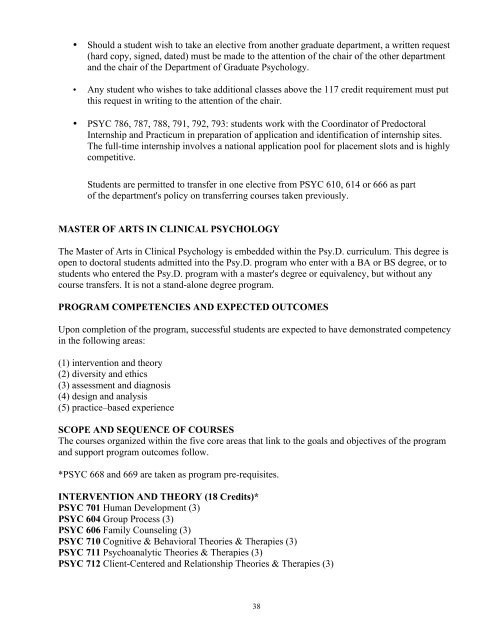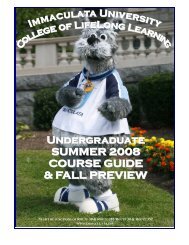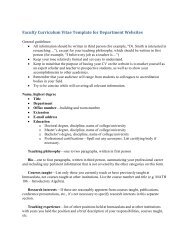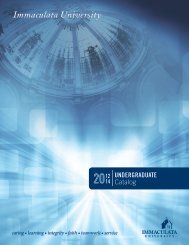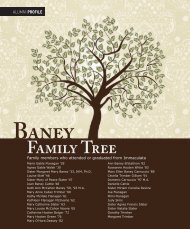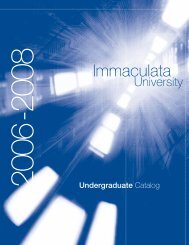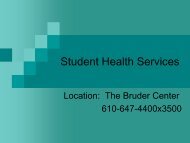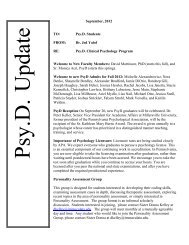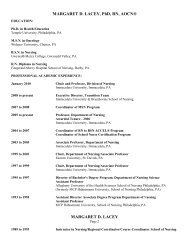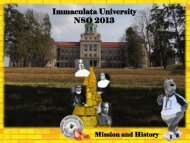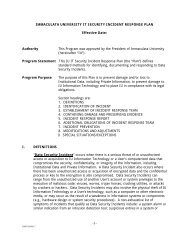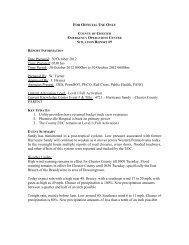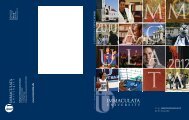Psy.D. Handbook Doctor of Psychology Program in Clinical ...
Psy.D. Handbook Doctor of Psychology Program in Clinical ...
Psy.D. Handbook Doctor of Psychology Program in Clinical ...
Create successful ePaper yourself
Turn your PDF publications into a flip-book with our unique Google optimized e-Paper software.
• Should a student wish to take an elective from another graduate department, a written request<br />
(hard copy, signed, dated) must be made to the attention <strong>of</strong> the chair <strong>of</strong> the other department<br />
and the chair <strong>of</strong> the Department <strong>of</strong> Graduate <strong>Psy</strong>chology.<br />
• Any student who wishes to take additional classes above the 117 credit requirement must put<br />
this request <strong>in</strong> writ<strong>in</strong>g to the attention <strong>of</strong> the chair.<br />
• PSYC 786, 787, 788, 791, 792, 793: students work with the Coord<strong>in</strong>ator <strong>of</strong> Predoctoral<br />
Internship and Practicum <strong>in</strong> preparation <strong>of</strong> application and identification <strong>of</strong> <strong>in</strong>ternship sites.<br />
The full-time <strong>in</strong>ternship <strong>in</strong>volves a national application pool for placement slots and is highly<br />
competitive.<br />
Students are permitted to transfer <strong>in</strong> one elective from PSYC 610, 614 or 666 as part<br />
<strong>of</strong> the department's policy on transferr<strong>in</strong>g courses taken previously.<br />
MASTER OF ARTS IN CLINICAL PSYCHOLOGY<br />
The Master <strong>of</strong> Arts <strong>in</strong> Cl<strong>in</strong>ical <strong>Psy</strong>chology is embedded with<strong>in</strong> the <strong>Psy</strong>.D. curriculum. This degree is<br />
open to doctoral students admitted <strong>in</strong>to the <strong>Psy</strong>.D. program who enter with a BA or BS degree, or to<br />
students who entered the <strong>Psy</strong>.D. program with a master's degree or equivalency, but without any<br />
course transfers. It is not a stand-alone degree program.<br />
PROGRAM COMPETENCIES AND EXPECTED OUTCOMES<br />
Upon completion <strong>of</strong> the program, successful students are expected to have demonstrated competency<br />
<strong>in</strong> the follow<strong>in</strong>g areas:<br />
(1) <strong>in</strong>tervention and theory<br />
(2) diversity and ethics<br />
(3) assessment and diagnosis<br />
(4) design and analysis<br />
(5) practice–based experience<br />
SCOPE AND SEQUENCE OF COURSES<br />
The courses organized with<strong>in</strong> the five core areas that l<strong>in</strong>k to the goals and objectives <strong>of</strong> the program<br />
and support program outcomes follow.<br />
*PSYC 668 and 669 are taken as program pre-requisites.<br />
INTERVENTION AND THEORY (18 Credits)*<br />
PSYC 701 Human Development (3)<br />
PSYC 604 Group Process (3)<br />
PSYC 606 Family Counsel<strong>in</strong>g (3)<br />
PSYC 710 Cognitive & Behavioral Theories & Therapies (3)<br />
PSYC 711 <strong>Psy</strong>choanalytic Theories & Therapies (3)<br />
PSYC 712 Client-Centered and Relationship Theories & Therapies (3)<br />
38


